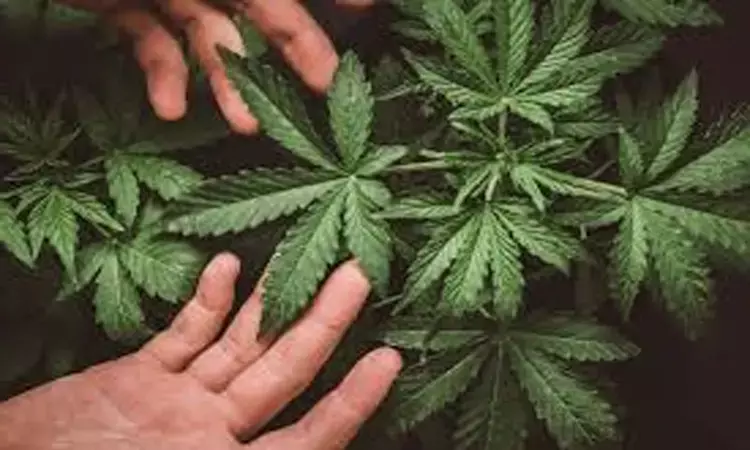- Home
- Medical news & Guidelines
- Anesthesiology
- Cardiology and CTVS
- Critical Care
- Dentistry
- Dermatology
- Diabetes and Endocrinology
- ENT
- Gastroenterology
- Medicine
- Nephrology
- Neurology
- Obstretics-Gynaecology
- Oncology
- Ophthalmology
- Orthopaedics
- Pediatrics-Neonatology
- Psychiatry
- Pulmonology
- Radiology
- Surgery
- Urology
- Laboratory Medicine
- Diet
- Nursing
- Paramedical
- Physiotherapy
- Health news
- Fact Check
- Bone Health Fact Check
- Brain Health Fact Check
- Cancer Related Fact Check
- Child Care Fact Check
- Dental and oral health fact check
- Diabetes and metabolic health fact check
- Diet and Nutrition Fact Check
- Eye and ENT Care Fact Check
- Fitness fact check
- Gut health fact check
- Heart health fact check
- Kidney health fact check
- Medical education fact check
- Men's health fact check
- Respiratory fact check
- Skin and hair care fact check
- Vaccine and Immunization fact check
- Women's health fact check
- AYUSH
- State News
- Andaman and Nicobar Islands
- Andhra Pradesh
- Arunachal Pradesh
- Assam
- Bihar
- Chandigarh
- Chattisgarh
- Dadra and Nagar Haveli
- Daman and Diu
- Delhi
- Goa
- Gujarat
- Haryana
- Himachal Pradesh
- Jammu & Kashmir
- Jharkhand
- Karnataka
- Kerala
- Ladakh
- Lakshadweep
- Madhya Pradesh
- Maharashtra
- Manipur
- Meghalaya
- Mizoram
- Nagaland
- Odisha
- Puducherry
- Punjab
- Rajasthan
- Sikkim
- Tamil Nadu
- Telangana
- Tripura
- Uttar Pradesh
- Uttrakhand
- West Bengal
- Medical Education
- Industry
Cannabis use tied to increased pain and more anesthesia need during surgery

CHICAGO - Not only might cannabis users require more anesthesia during surgery than non-users, they may have increased pain afterwards and use higher doses of opioids while in the hospital, suggests first-of-its-kind research being presented at the ANESTHESIOLOGY® 2020 annual meeting.
Adding to the growing body of research that shows patients who use cannabis have higher anesthesia needs and more surgery-related pain, the study was the first to compare the effects of cannabis among users and non-users during and after surgery. All patients in the study had surgery for a broken leg (shin bone).
"There is some evidence that cannabis may be beneficial for chronic and nerve pain. However, early research suggests that this is not the case for acute pain such as for surgery of a broken leg," said Ian Holmen, M.D., lead author of the study and an anesthesiology resident at the University of Colorado Hospital, Aurora. "We now understand patients who chronically use opioids prior to surgery often have exaggerated pain responses and need increased pain medication after surgery because they have an increased tolerance. We speculate that cannabis use may cause a similar effect, but we need more research to determine if this is the case."
The researchers looked at the charts of 118 patients who had surgery at the University of Colorado Hospital to repair a fractured tibia and found 30 (25.4%) had reported using cannabis prior to surgery. The timing, frequency and type of cannabis use was not indicated. They then compared the two groups (users vs. non-users), assessing the amount of anesthesia provided during surgery, patient reported pain scores, and dosage of opioids consumed in the hospital after surgery. They found those who had used cannabis:
- Required more sevoflurane (anesthetic): an average of 37.4 ml vs. 25 ml
- a. Reported higher pain scores while in recovery: an average of 6 vs. 4.8, a statistically significant difference (based on the patient's response to their level of pain, with 0-3 being little to no pain, 4-7 being moderate but tolerable pain and 8-10 being severe pain)
- b. Received 58% more opioids per day while in the hospital (a typical stay was 2-3 days): an average of 155.9 morphine milligram equivalents (MME) per day vs. 98.6 MME per day
A physician anesthesiologist increases the level of sevoflurane during surgery based on observations of the patient, such as involuntary body movements, increased heart rate, high blood pressure or increased rate of breathing, which are signs the patient may be experiencing more pain.
Researchers did not include patients who suffered from chronic pain or those whose University of Colorado health system records indicated they had been previously prescribed opioids.
"This study shows that it is important for patients to tell their physician anesthesiologists if they have used cannabis products prior to surgery to ensure they receive the best anesthesia and pain control possible, including the use of non-opioid alternatives," said Dr. Holmen. "It also confirms that more research is needed to understand how cannabis impacts pain."
Dr Kamal Kant Kohli-MBBS, DTCD- a chest specialist with more than 30 years of practice and a flair for writing clinical articles, Dr Kamal Kant Kohli joined Medical Dialogues as a Chief Editor of Medical News. Besides writing articles, as an editor, he proofreads and verifies all the medical content published on Medical Dialogues including those coming from journals, studies,medical conferences,guidelines etc. Email: drkohli@medicaldialogues.in. Contact no. 011-43720751


